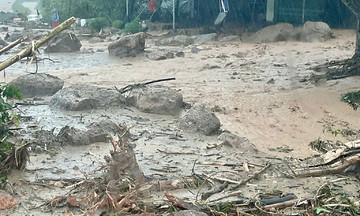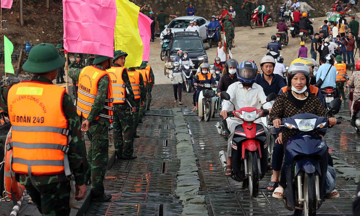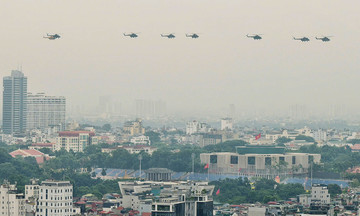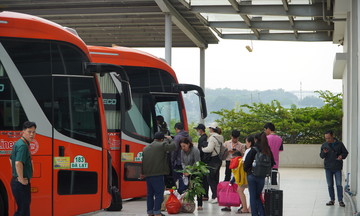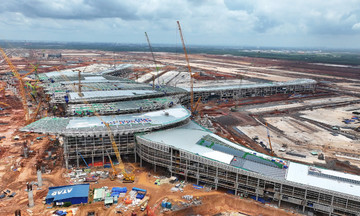On the morning of 10/7, Prime Minister Pham Minh Chinh chaired a conference evaluating three years of implementing Resolution 18 on land management and use, and one year of implementing the 2024 Land Law. He assessed that the application of these policies has yielded positive results. Land laws are gradually being put into practice, overcoming obstacles, and improving the effectiveness of state management. This contributes to socio-economic development and ensures national defense and security. Land policies have strengthened the confidence of people, businesses, and investors.
However, land policies and laws still have shortcomings and are not entirely consistent with the policy of organizing local government at two levels, nor do they meet the requirements of national development in the new period. Specifically, land acquisition policies still differentiate between projects using public investment capital and those using private investment capital. Procedures for land acquisition, compensation, support, resettlement, land allocation, land lease, and land-use purpose conversion remain lengthy.
In addition, some innovative land finance policies under Resolution 18 have not been fully institutionalized. The State's role in deciding and controlling land prices as the representative of land ownership has not been clearly defined. In many places, land auctions have been exploited for speculation, price inflation, and market manipulation.
The Prime Minister believes one reason for these issues is an incomplete and inconsistent understanding of the role and importance of land in a market economy, and the State's role as the representative of ownership and unified management of land. Regulations related to land are not unified and synchronized.
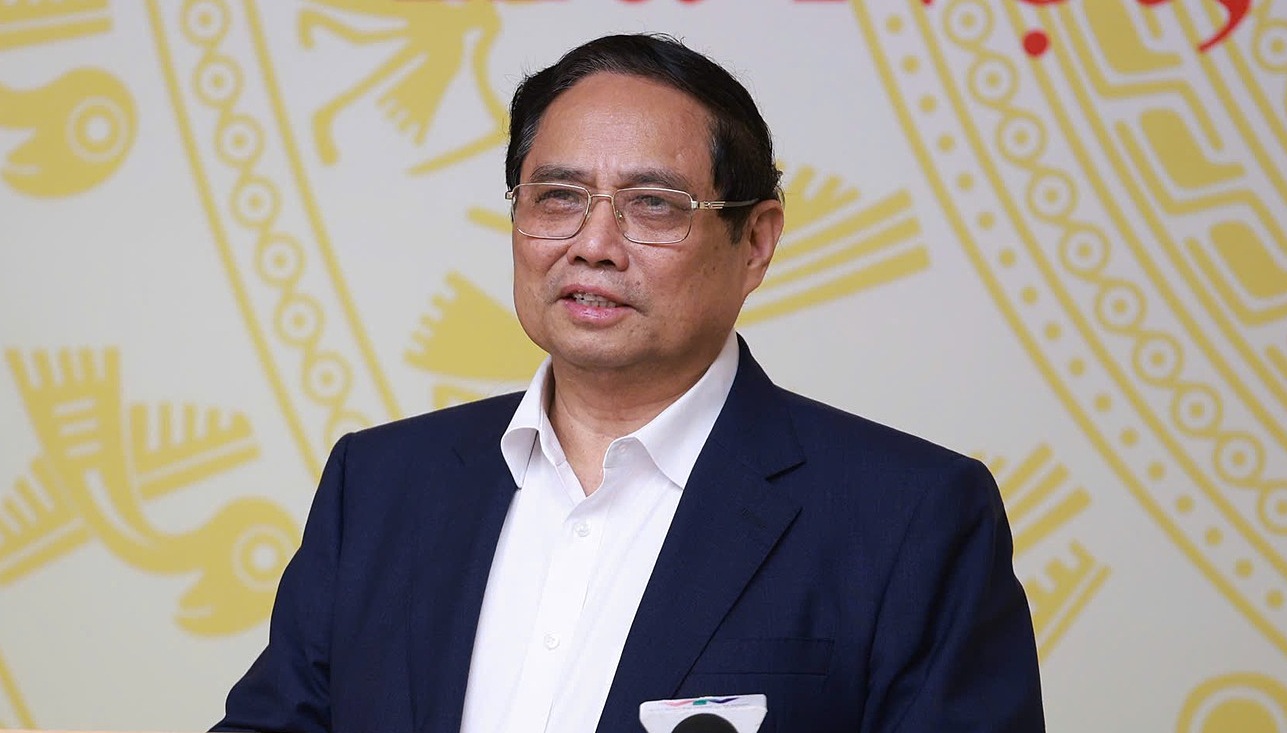 |
Prime Minister Pham Minh Chinh speaking on the morning of 10/7. Photo: Nhat Bac |
Prime Minister Pham Minh Chinh speaking on the morning of 10/7. Photo: Nhat Bac
Therefore, following the direction of the Politburo, the Government Party Committee chaired the conference to evaluate three years of implementing Resolution 18 and one year of implementing the 2024 Land Law to propose amendments to the Central Committee via the Politburo.
Government leaders noted that land is a difficult, sensitive, and complex issue, requiring patience and attentiveness to the opinions of managers, scientists, citizens, and businesses. They emphasized avoiding perfectionism and haste in the adjustment and supplementation process.
"What is mature, clear, proven correct by practice, implemented effectively, and agreed upon by the majority should be supplemented and legalized, ensuring flexibility and suitability to the new situation", the Prime Minister said, affirming that land is owned by the people, the State represents ownership and manages it uniformly. Land use rights are an important input for socio-economic development and investment.
The Prime Minister requested research on several aspects when amending Resolution 18 and the 2024 Land Law: perfecting land management and use policies; supplementing solutions for land use planning to maximize effectiveness, exploit the unique potential, outstanding opportunities, and competitive advantages of each region.
Policies on land allocation, lease, and land-use purpose conversion; land acquisition, compensation, support, and resettlement; land pricing and finance; and some issues related to land with foreign elements also need revision.
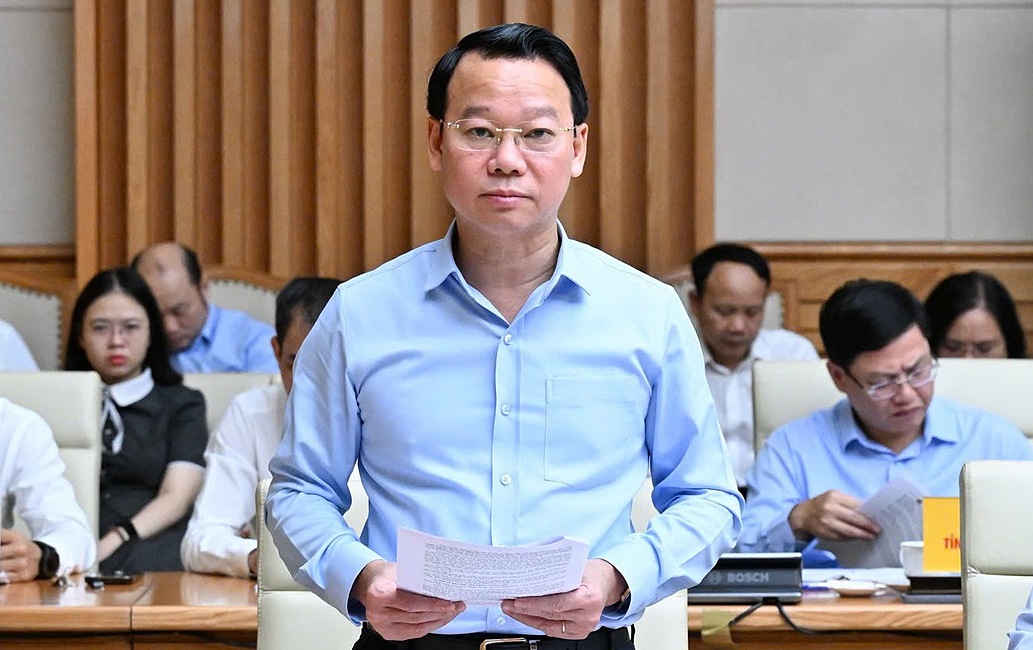 |
Minister of Agriculture and Rural Development Le Minh Hoan speaking on the morning of 10/7. Photo: Nhat Bac |
Minister of Agriculture and Rural Development Le Minh Hoan speaking on the morning of 10/7. Photo: Nhat Bac
Resolution 18 on continuing to renovate and improve institutions and policies, enhancing the effectiveness and efficiency of land management and use, and creating momentum for Vietnam to become a high-income developed country, was issued by the Central Committee in 6/2022. It mentions many new policies such as: Eliminating the land price framework; stipulating higher taxes for those using large areas of land, housing, land speculation, slow use, or leaving land unused; strengthening cashless payments in real estate transactions; land acquisition only after compensation, support, and resettlement plans are approved, etc.
In 1/2024, the National Assembly passed the amended Land Law, comprising 16 chapters and 260 articles, with many new points compared to the 2013 Law, such as: Stipulating 32 cases of land acquisition for national and public interests; diversifying compensation forms for those whose land is acquired; expanding the limit for agricultural land transfer; granting land use right certificates for undocumented land before 1/7/2014, etc.




